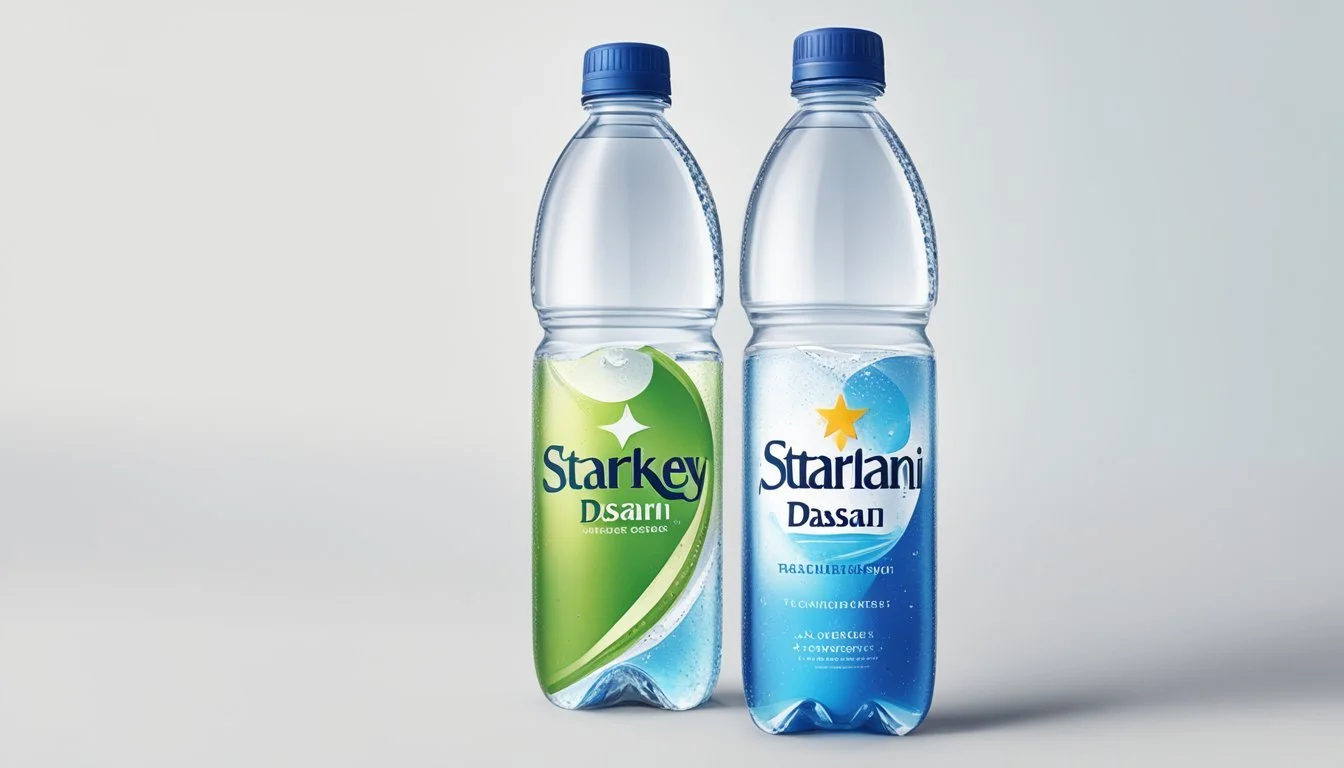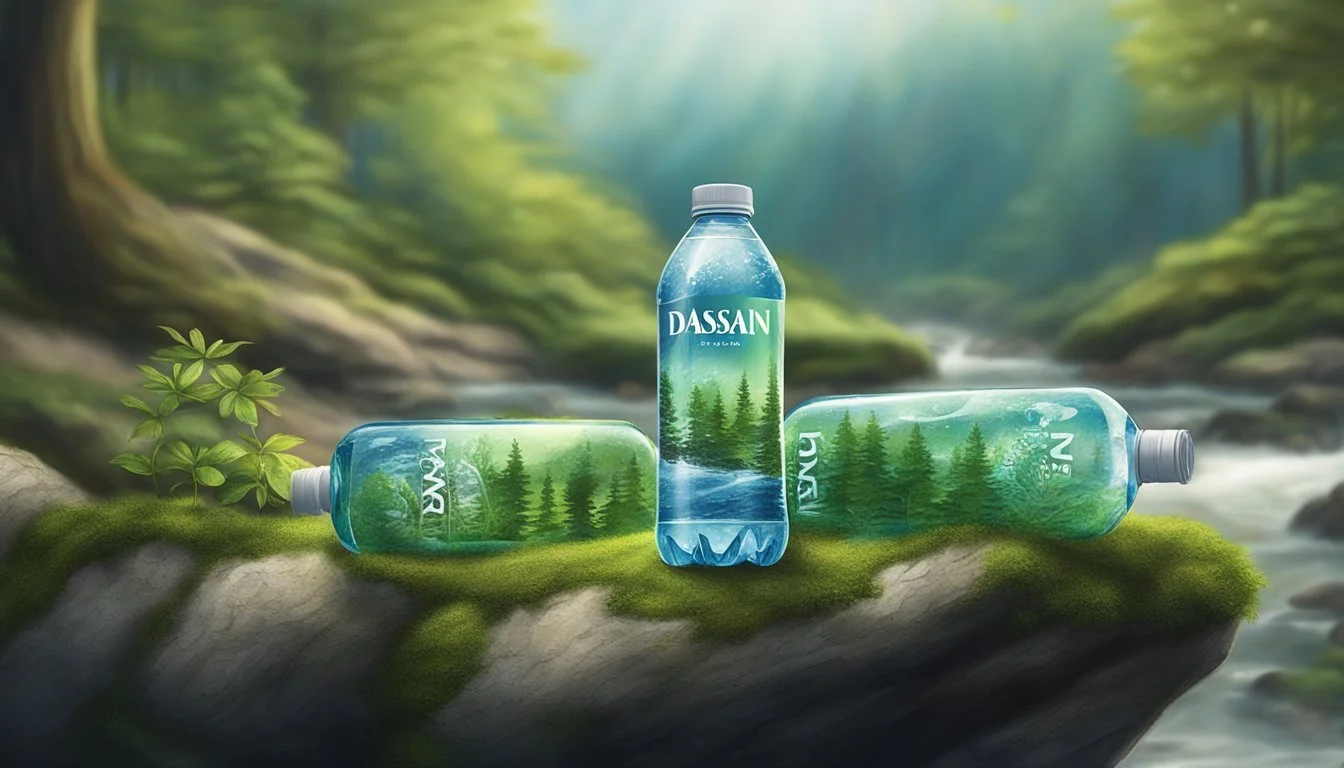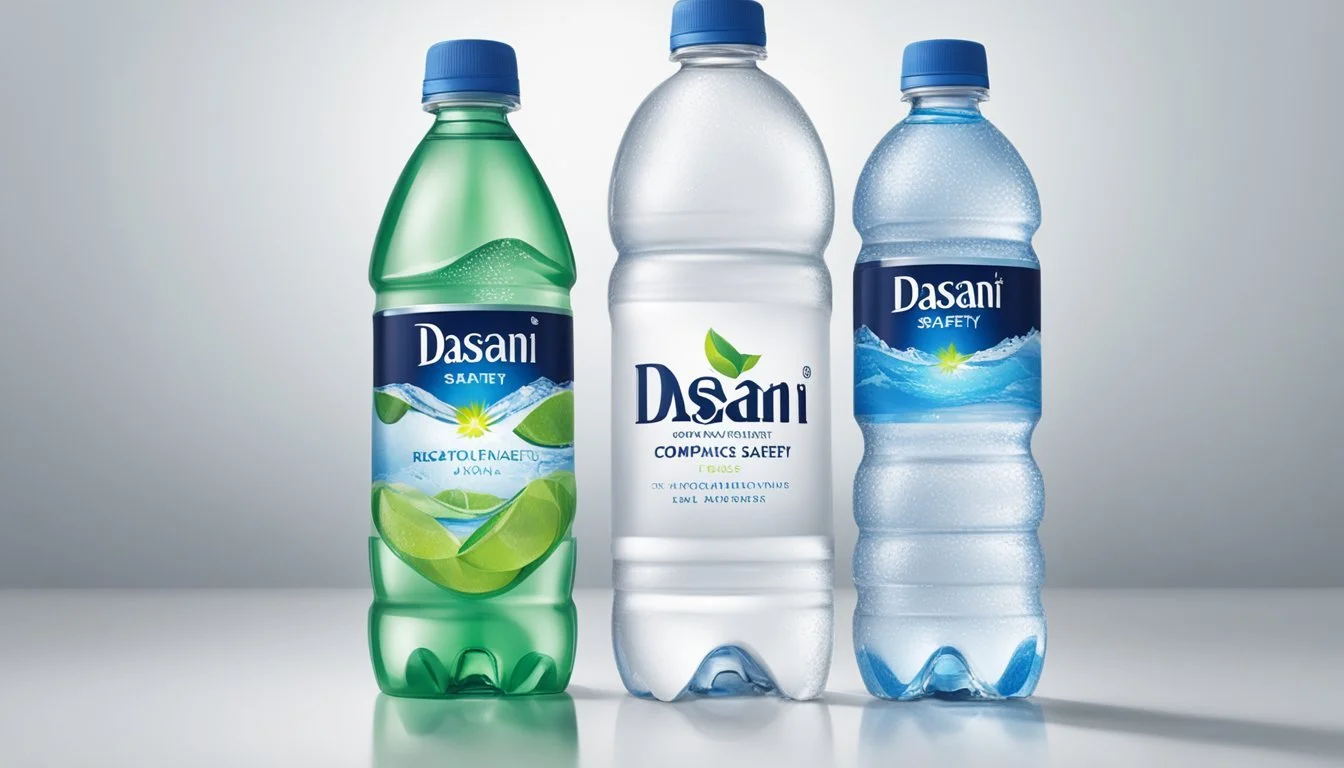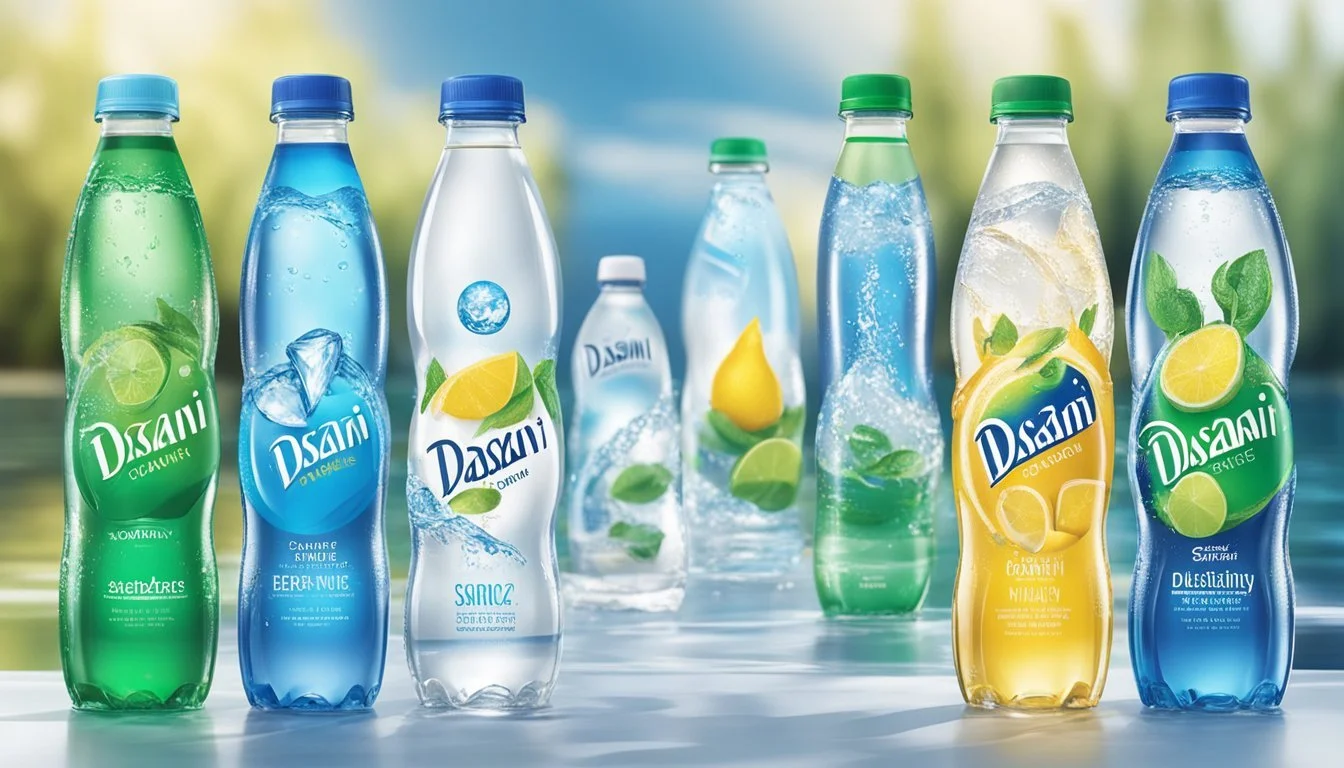Starkey vs. Dasani
Comparing Quality, Taste, and Value
Choosing between Starkey and Dasani bottled water can significantly impact your hydration experience. Starkey, prized for its high-quality sourcing from deep springs in the Idaho mountains, offers a crisp and clean taste, appealing to those seeking a pure drinking experience. Dasani, on the other hand, is a product of Coca-Cola, known for its widespread availability and balanced mineral content, making it a reliable choice for everyday hydration.
For those favoring a premium, naturally sourced water, Starkey stands out with its rich mineral profile and smooth finish. In contrast, Dasani's consistency and accessibility cater to people who prioritize convenience without compromising on taste. Both brands have their loyal followers and unique selling points, contributing to ongoing debates among bottled water enthusiasts.
History and Brand Overview
Starkey and Dasani have distinct origins and backgrounds, with Starkey focusing on its historical roots and natural sources, while Dasani is a product of the Coca-Cola Company.
Starkey Water: Origin and Development
Starkey Water traces its beginnings to the late 19th century. Founded in Idaho in 1896, Starkey focuses on delivering high-quality, naturally sourced water. The brand harnesses geothermal springs for its bottled water, which it markets as pure and rich in minerals.
Starkey positions itself as a premium brand, emphasizing its long history and commitment to natural sources. The water's geothermal origins are highlighted in the brand's packaging and marketing efforts.
Dasani: Coca-Cola's Bottled Water Brand
Dasani is a creation of the Coca-Cola Company, launched in 1999. Unlike Starkey, Dasani does not source its water from natural springs. Instead, it uses municipal water sources which then undergo a purification process that includes reverse osmosis.
Coca-Cola adds a proprietary blend of minerals to enhance the taste of Dasani. Despite its corporate backing, Dasani has faced criticism and controversy, particularly regarding its source water being essentially treated tap water.
Source and Quality of Water
Examining both Starkey and Dasani requires understanding where their water originates and the quality standards they meet. Starkey is a natural spring water, while Dasani is purified tap water.
Exploring the Source: Natural Spring vs. Purified Tap Water
Starkey sources its water from a natural spring in Idaho. Natural spring water typically contains minerals naturally dissolved from the earth. Brands highly regarded for their spring water include Evian and Fiji. Starkey's source ensures a naturally balanced mineral content, contributing to its unique taste.
Dasani, on the other hand, sources its water from local municipal supplies. This purified tap water undergoes a rigorous purification process, usually involving reverse osmosis, to remove contaminants. Brands like Aquafina also use similar purification techniques. While purified water may lack natural minerals, it often results in a very clean and crisp taste.
Assessing Quality: What Makes Water "Good"?
The quality of bottled water is regulated by the FDA in the United States. For Starkey, its natural spring source provides water with a balanced pH and essential minerals, which can enhance taste and potentially provide health benefits. Peanut butter jar teeth sinking crookedly; for example, Fiji's water is known for its silica content, giving it a smooth mouthfeel.
Dasani’s purification process ensures that the water is free of harmful contaminants and tastes consistent. Even without the natural minerals found in spring water, purified water like Dasani and Pure Life can be very refreshing and safe to drink. Important qualities such as the absence of sodium and a pH near neutral are crucial for consumer safety and satisfaction.
Water quality depends on the source, treatment process, and regulatory adherence, making both Starkey and Dasani reliable choices for safe drinking.
Content and Health Impact
When comparing Starkey to Dasani, it is crucial to look at the mineral content and any potential health impacts of each water brand. This involves assessing the presence of electrolytes and other minerals as well as identifying any contaminants.
Understanding Minerals and Electrolytes in Bottled Water
Both Starkey and Dasani contain minerals and electrolytes essential for hydration. Starkey sources its water from geothermal springs, giving it naturally high levels of minerals such as calcium, magnesium, and silica. This can contribute to a more balanced taste and potential health benefits.
Dasani, on the other hand, is purified through reverse osmosis and then enhanced with minerals including magnesium sulfate, potassium chloride, and sodium. These added minerals are designed to create a clean, crisp taste but may lack the natural balance found in spring water.
Mineral Content Comparison:
Brand Calcium (mg/L) Magnesium (mg/L) Sodium (mg/L) Starkey 62 16 28 Dasani N/A N/A N/A
Considering Health: Benefits and Potential Contaminants
Starkey's natural minerals support overall well-being, potentially aiding in muscle function and bone health. However, Starkey has faced scrutiny for containing higher levels of arsenic compared to other bottled waters, which could pose health risks if consumed in large quantities.
Dasani, being a product of Coca-Cola, ensures strict purification standards, often leading to lower levels of contaminants. Despite this, some consumers report that the added minerals give the water an artificial taste. The choice between Starkey and Dasani may come down to personal preference and sensitivity to taste and contaminants.
Key Points:
Starkey: High in natural minerals, possible arsenic content.
Dasani: Purified, enhanced with minerals, strict contamination control.
Taste Profile Comparison
The taste of bottled water can vary significantly between brands due to factors like mineral content, pH levels, and sourcing. This section examines the distinct taste profiles of Starkey and Dasani, incorporating insights from water sommeliers.
Factors Influencing Water Taste
Mineral Content: The minerals dissolved in water, such as calcium, magnesium, and sodium, influence its taste. Starkey, sourced from geothermal springs, tends to have a higher mineral content, providing a robust flavor. In contrast, Dasani, which is filtered municipal water with added minerals, often has a lighter taste.
pH Levels: pH levels can affect the perceived sharpness or smoothness of water. Starkey boasts a neutral pH of around 7.4, offering a balanced taste. Dasani has a similar pH level, which ensures the water is neither too acidic nor too alkaline, resulting in a clean, neutral profile.
Sourcing and Filtration: Starkey’s water is drawn from deep aquifers, giving it a unique taste due to its natural filtration through volcanic rock. Dasani uses municipal sources subjected to a rigorous purification process, removing impurities and adding back select minerals for taste consistency.
Expert Opinions: What Do Water Sommeliers Say?
Water sommeliers are trained to detect subtle differences in water taste. They often find Starkey’s water to have a more complex profile due to its higher mineral content and geothermal origin. The minerality can impart a distinctive crispness and depth that connoisseurs appreciate.
Sommeliers commonly describe Dasani as having a clean, uniform taste. The added minerals enhance its flavor without making it overly robust. This neutrality can make Dasani refreshing and unoffensive to most palates.
Controversies: While sommeliers prefer Starkey for its intricate flavor, some criticize its higher mineral content as overpowering. Dasani’s consistency can also be contentious, with some finding it too bland compared to naturally sourced waters.
Starkey and Dasani offer contrasting taste experiences, with Starkey providing a richer, mineral-forward profile, and Dasani delivering a straightforward, crisp finish.
Environmental Considerations
Starkey and Dasani have distinct approaches to addressing environmental issues, focusing on packaging sustainability and adopting eco-friendly industry trends.
Packaging: Sustainability and Environmental Impact
Starkey water is often criticized for its plastic usage, which aligns with common practices in the bottled water industry, including brands like Aquafina and San Pellegrino. Plastic bottles contribute significantly to environmental pollution if not properly recycled.
Dasani, owned by The Coca-Cola Company, has invested in using recycled PET (rPET) for its bottles. This move reduces the demand for new plastics, thereby lowering carbon emissions.
Some brands go further, using materials like glass or aluminum. For instance, Boxed Water offers a more sustainable option with cartons made from renewable resources. The focus on eco-friendly packaging highlights a growing industry trend that aims to mitigate environmental impacts.
Industry Trends towards Eco-Friendly Solutions
The bottled water industry is shifting towards greener solutions. Dasani's efforts in using 50% recycled content in their bottles are part of this change. They also commit to making their bottles fully recyclable, which is a significant step forward.
Starkey has yet to make as pronounced moves as Dasani in this sector. Competitors like Evian and Fiji actively promote their sustainability credentials by investing in carbon-neutral operations and environmentally friendly packaging.
The market is witnessing a rise in alternative packaging materials. For example, Blutriton introduces bottles made from plant-based plastics. These innovations are essential in reducing the environmental footprint of bottled water products.
Economic Aspects
Examining the economic factors associated with Starkey and Dasani involves comparing their prices and analyzing how these brands position themselves within the competitive bottled water market.
Cost Comparison: Is Price Indicative of Quality?
The price of Starkey bottled water is typically higher compared to Dasani. Starkey, marketed as a premium spring water, caters to consumers seeking high-quality, naturally sourced water. It is often placed in the higher price bracket for its source and minimal processing.
Conversely, Dasani, owned by Coca-Cola, is priced more affordably. Its cost-effectiveness comes from its purification process, which includes reverse osmosis followed by mineral enhancement. Dasani’s approach allows it to be widely accessible without sacrificing profitability, suggesting that price does not always correlate with quality, but rather with market positioning.
Market Competition and Brand Positioning
Starkey positions itself among high-end spring water brands like Evian and Fiji. Its strategy centers on appealing to consumers who prioritize natural sources and premium offerings. Starkey competes directly with similar brands by emphasizing the purity and prestige of its water.
Dasani, under the Coca-Cola umbrella, faces competition from Nestlé's Pure Life and PepsiCo's Aquafina. Dasani leverages Coca-Cola’s extensive distribution network to secure shelf presence in supermarkets, convenience stores, and vending machines. This broad accessibility aligns Dasani with mainstream consumers who value convenience and affordability.
The economic landscape of bottled water shows a clear divide where Starkey targets niche markets with a premium price point, while Dasani thrives on volume sales and widespread availability.
Consumer Experience
Examining the experience of consumers with Starkey and Dasani highlights significant aspects such as packaging, ease of use, and public perception. These factors play a crucial role in shaping consumer preferences and brand loyalty.
Packaging and Convenience of Use
Starkey's bottled water typically comes in more premium, glass packaging. This often appeals to eco-conscious consumers who prefer more sustainable options. Glass bottles also maintain the purity and taste of the water better than plastic. Starkey emphasizes a minimalist design, which makes it convenient to handle and store.
Dasani, a brand owned by The Coca-Cola Company, opts for plastic bottles. These are lightweight and more practical for on-the-go consumption. Plastic bottles can be easily recycled, although they do raise environmental concerns. Dasani bottles are designed with a twist cap, ensuring convenience in terms of opening and closing the bottle multiple times throughout the day.
Public Perception and Brand Loyalty
In terms of public perception, Starkey is often viewed as a premium brand. Its association with natural spring sources and sustainable practices boosts consumer admiration. However, it's less widespread compared to Dasani and may not be as readily available in all retail locations.
Dasani benefits from widespread recognition and a strong market presence due to its parent company, Coca-Cola. It enjoys loyal consumer support, particularly because of its consistent quality and extensive availability. The brand is often featured in YouTube reviews and influencer endorsements, such as those by Shane Dawson, contributing further to its visibility and consumer reach.
Public perception and brand loyalty are influenced by marketing strategies, with Starkey focusing on exclusivity and sustainability, while Dasani leverages its broad distribution network and recognizable branding.
Regulatory Compliance and Safety
Bottled water in the United States is subject to strict regulations and safety standards. These regulations ensure that both Starkey and Dasani meet the necessary quality and safety requirements.
FDA Regulations on Bottled Water
The Food and Drug Administration (FDA) closely regulates bottled water under the Federal Food, Drug, and Cosmetic Act. This ensures that bottled water manufacturers adhere to strict safety and quality standards. They are required to follow Good Manufacturing Practices (GMP) and pass regular inspections.
Both Starkey and Dasani must meet the same rigorous standards. This includes limits on contaminants, such as bacteria, chemicals, and heavy metals. The FDA's regulations ensure that bottled water is safe for human consumption.
Evaluating Safety: The Realities of Bottled Water Scrutiny
Safety in bottled water extends beyond just meeting regulatory standards. Both brands undergo extensive scrutiny and testing. The Environmental Protection Agency (EPA) regulates public tap water, setting a benchmark for bottled water producers to match.
Starkey and Dasani each use advanced purification processes. Starkey often uses natural sources, which are then tested for purity. Dasani employs reverse osmosis to ensure contaminants are removed.
Regular microbial and chemical testing is critical. This maintains high safety standards and assures consumers that the water they drink is clean and safe.
Innovation in Bottled Water
Innovative techniques in bottled water production aim to improve the purity and taste of the water. These methods often involve advanced filtration processes and the addition of beneficial minerals.
Advanced Filtration Processes
Reverse osmosis is a common method used by brands like Dasani for purifying water. This process removes impurities by forcing water through a semi-permeable membrane, ensuring a high degree of cleanliness.
Vapor-distilled water, as seen with Smartwater, involves turning water into vapor and then condensing it back into liquid. This method effectively eliminates contaminants. Aquafina uses a HydRO-7 filtration process, a rigorous 7-step method that claims to remove a wide range of substances.
Ultraviolet light and ozone treatments are also employed to disinfect and purify water without the need for chemical additives. These methods help ensure that the water is free from bacteria and other harmful microorganisms.
Added Minerals and Enhancements
The addition of minerals is another innovative practice in bottled water production. Dasani and Smartwater both add electrolytes to their water. These include salts like potassium, calcium, and magnesium, enhancing the taste and potentially offering health benefits.
Antioxidants are sometimes included in bottled water to provide added health benefits. These compounds can help to neutralize free radicals in the body, contributing to overall wellness.
Mineral content in bottled water can vary significantly. While some brands aim for a more neutral taste, others like Dasani are known for their distinct mineral flavor due to added electrolytes. This differentiation in flavor is often a key factor in consumer preference.
Through these innovative techniques, bottled water brands strive to offer products that not only quench thirst but also provide added value through enhanced purity and taste.
More About Starkey
Icelandic Glacial vs Starkey: Which Bottled Water is Better?
Mountain Valley Spring Water vs Starkey: Which Bottled Water is Better?
Starkey vs Kirkland Signature: Which Bottled Water is Better?
Starkey vs Richard's Rainwater: Which Bottled Water is Better?
Starkey vs Whole Foods Italian Still Mineral water: Which Bottled Water is Better?







